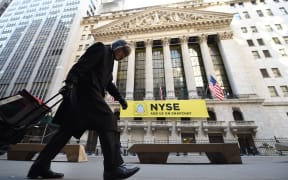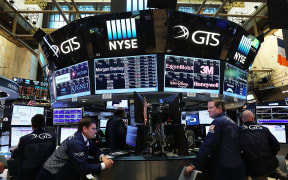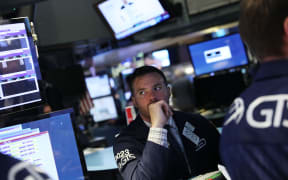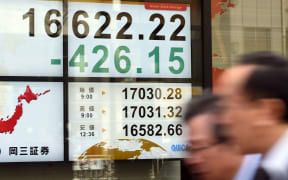The blue chip Dow Jones Industrial Average suffered its steepest decline since June 2016 on Friday, amid wider losses in US markets.
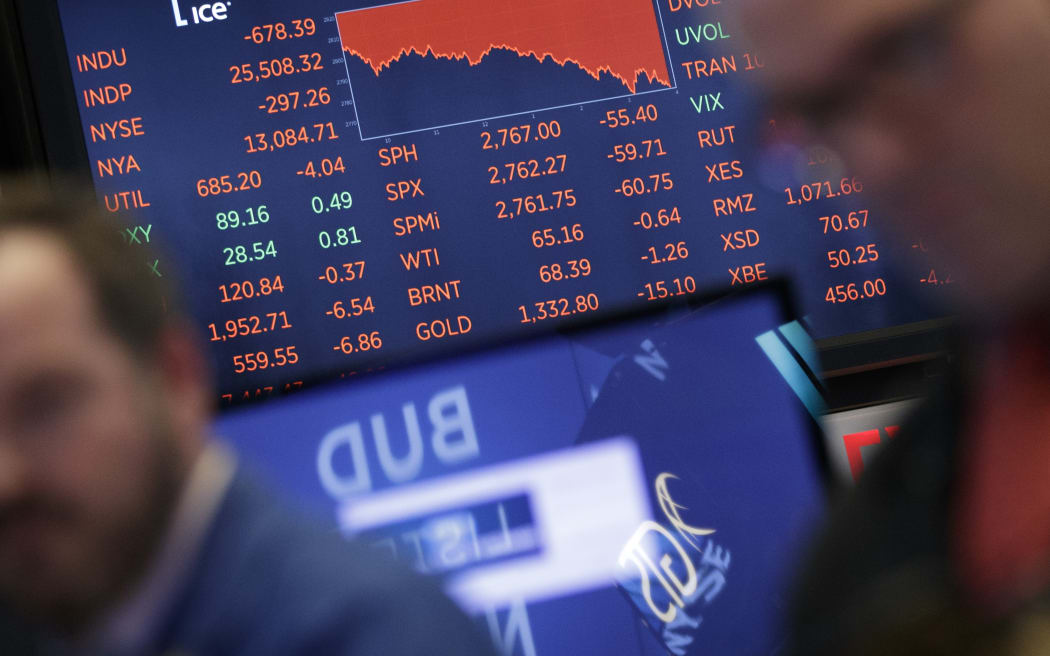
Photo: AFP
The fall came after a string of disappointing earnings reports from giants such as Apple.
Strong wage growth in the latest payrolls data also spooked investors raising the possibility of higher interest rates than expected.
The Dow fell more than 665 points or 2.5 percent to 25,520.96.
The S&P 500 tumbled 59.8 points, falling 2.12 percent to 2,762.13, while the Nasdaq closed 144.91 points lower at 7,240.9, down 1.96 percent.
The losses touched every sector, with the steepest declines in energy and technology stocks.
Chevron and Exxon, which both reported quarterly earnings to investors on Friday, were the two biggest losers on the Dow, falling more than 5 percent.
Apple, which reported after the close of trading on Thursday, was number four, retreating 4.3 percent.
Stocks were also rattled as the yield on the 10-year Treasury note hit a four-year high after Friday's payrolls report.
The gain in bond yields, which come as central banks globally ease stimulus programmes and raise rates, have touched off fears that stocks could become a less attractive investment, while signalling higher borrowing costs that could crimp consumer activity.
Analysts said markets may also be responding to outstanding political and policy issues, such as trade tensions with partners such as China and how tax cuts will shift corporate financial strategies.
"There are still a number of question marks on the side of fiscal policy," said Lindsey Piezga, chief economist at Stifel Fixed Income.
'Real investing activity'
For the week, the Dow fell 4 percent, while the Nasdaq and S&P 500 each slipped by more than 3 percent.
Analysts cautioned against reading too much into the market declines, which follow a massive rally in 2017 that was fuelled by a strengthening global economy and high expectations for US corporate tax cuts.
The three major stocks indexes also closed January up more than 5 percent.
The Dow, which tracks about 30 major companies, in particular is not a good gauge, said Brian Barnier, head of analytics at Valuebridge Advisers.
"It's very important to separate trading activity from real investing activity," said Mr Barnier, who also teaches at the Colin Powell School at the City College of New York.
Assuming they have well-designed portfolios, "mom and pops sitting at home ... should not be concerned, given the massive run up in the market," he said.
- BBC
